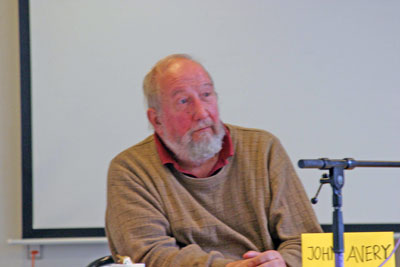Restoring Democracy In The United States
By John Scales Avery
10 November, 2012
Countercurrents.org
The Occupy Wall Street movement's slogan, “We are the 99%”, points to the fact that a very small power elite, perhaps only 1% of the population, has a hugely disproportionate amount of economic and political power in the United States. In this sense, the United States is no longer a democracy, since neither the economic system nor the government serve the will and needs of the people. They serve instead the interests of the wealthy and powerful 1%, who control not only the mass media and the financial system, but also the politicians of both major parties. The situation in many other countries is very similar.
But as Occupy Wall Street tells us, this need not be so. After all we, the ordinary people, who long for reform, are an overwhelming majority. We are the 99%, and if we choose to exert ourselves, we have the power to change the system. The problem is that, having voted, we tend to lapse into several years of political inactiivity, convinced that we are powerless. But nothing could be more false than our sense of powerlessness, and nothing could be more dangerous to true democracy. Voting is only a small part of our duty, We must also maintain constant political activity to ensure that those whom we have placed in office actually serve the will and the needs of the people. This means creating our own media, if the mass media are slaves to the power elite. It means constant activity, meetings, demonstrations, exhibitions, videos produced for U-tube, and whatever other means we can invent to constantly hold before the public and the government a vision of what is right.
When President Obama was elected for a second term, the majority of the world's peoples heaved a huge sigh of relief. Disaster had been avoided. But the newly re-elected President is faced with a House of Representatives controlled by the Republicans, and with a Senate which hardly differs from the House on most issues. Both the House and the Senate are powerfully influenced by lobbies, representing, for example, the interests of Wall Street, the fossil fuel industry and the military-industrial complex. Therefore they take no action to regulate the banks, or to cut grossly bloated military budgets, or to address the vital issue of climate change. Instead they plan to cut social services for a population that already is in great distress.
The American people must make sure that this does not happen. They must hold President Obama to the idealistic promises of his 2008 campaign, and prevent him from compromising with the enemies of reform. If we live in other countries where democracy is in danger, we too must recognize our responsibilities making sure that our governments follow the paths of peace, social justice and environmental responsibility.
To President Obama himself, we should say: “Be bold. Do not compromise. Use your great gifts of oratory to proclaim what you think is right. We, the people, will actively support you!”
 John Avery received a B.Sc. in theoretical physics from MIT and an M.Sc. from the University of Chicago. He later studied theoretical chemistry at the University of London, and was awarded a Ph.D. there in 1965. He is now Lektor Emeritus, Associate Professor, at the Department of Chemistry, University of Copenhagen. Fellowships, memberships in societies: Since 1990 he has been the Contact Person in Denmark for Pugwash Conferences on Science and World Affairs. In 1995, this group received the Nobel Peace Prize for their efforts. He was the Member of the Danish Peace Commission of 1998. Technical Advisor, World Health Organization, Regional Office for Europe (1988- 1997). Chairman of the Danish Peace Academy, April 2004. http://www.fredsakademiet.dk/ordbog/aord/a220.htm
John Avery received a B.Sc. in theoretical physics from MIT and an M.Sc. from the University of Chicago. He later studied theoretical chemistry at the University of London, and was awarded a Ph.D. there in 1965. He is now Lektor Emeritus, Associate Professor, at the Department of Chemistry, University of Copenhagen. Fellowships, memberships in societies: Since 1990 he has been the Contact Person in Denmark for Pugwash Conferences on Science and World Affairs. In 1995, this group received the Nobel Peace Prize for their efforts. He was the Member of the Danish Peace Commission of 1998. Technical Advisor, World Health Organization, Regional Office for Europe (1988- 1997). Chairman of the Danish Peace Academy, April 2004. http://www.fredsakademiet.dk/ordbog/aord/a220.htm
Comments are moderated


